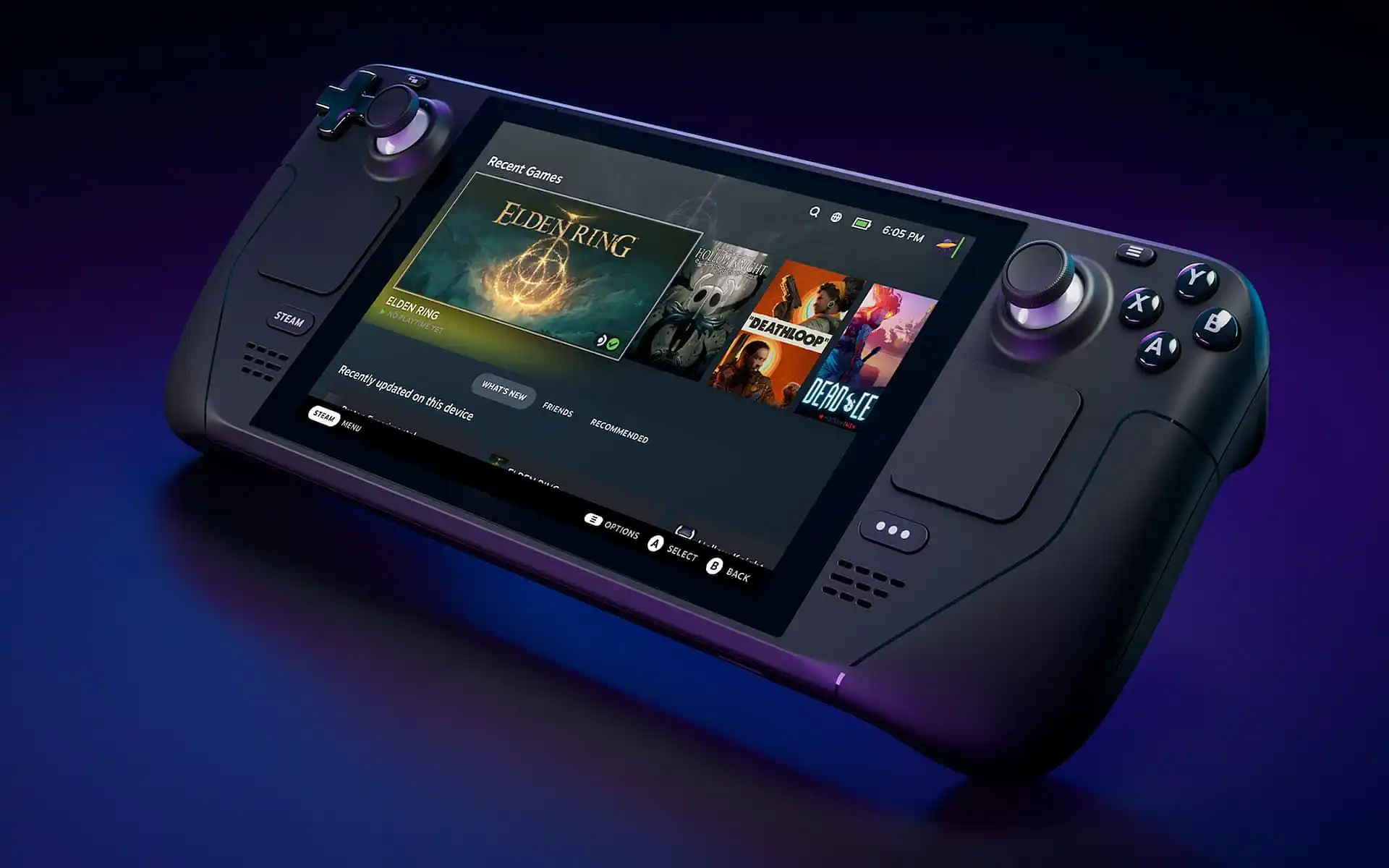The Steam Deck, an ambitious handheld gaming system from Valve Corporation, has completely revolutionized the gaming industry with its powerful technology and extensive selection of portable PC titles. It does, however, experience some teething issues, as with any new gadget.
Unexpected shutdowns after unplugging from a power source are one recurrent problem that has customers worried. Many early users are perplexed and annoyed by the Steam Deck’s disconnected shutdown issue, which disrupts gameplay and degrades the overall gaming experience.
Due to this annoying bug, the gadget, which is advertised as offering hours of uninterrupted gaming enjoyment, falls short of expectations. In this post, we examine the most practical and efficient fixes for the Steam Deck’s unexpected power-off issue as well as possible reasons. Here is our guide on Fix: Steam Deck turns off when unplugged.
Why does Steam Deck turns off when unplugged?
Short Answer: Steam Deck turns off when unplugged could be caused by a variety of factors, including battery-related issues, power management settings, or software bugs. These potential causes need to be thoroughly investigated to pinpoint the exact reason for the problem and to implement an effective fix.
This section delves into the various origins of this puzzling issue, illuminating the potential technological complexity that may be at play.
1. Battery-Related Issues
Battery problems or irregularities may be one of the main causes of the Steam Deck shutting off when disconnected. Even though lithium-ion batteries are very effective and often utilised in portable devices, they might degrade with time.
Reduced battery capacity or instability can be caused by excessive charging and discharging cycles, heat exposure, and incorrect calibration. Unexpected system shutdowns might occur if the battery is unable to supply a continuous supply of power while the device is disconnected, annoying users while they are playing games or performing other chores.
2. Power Management Settings
Intricate power management techniques are used by the Steam Deck to maximise battery life and functionality. The device may shut down suddenly when unplugged from an external power source if these settings are inconsistent or if some parameters are improperly specified.
Performance and energy efficiency must be carefully balanced in order to control power, and any shift from this equilibrium might have unfavorable effects such as abrupt power-offs.
3. Software Bugs and Firmware Issues
In freshly introduced gadgets, including game consoles, software issues, and firmware flaws are not unusual. It may be difficult to ensure smooth compatibility with the wide variety of PC games available on Steam since Steam Deck’s operating system, SteamOS, is built on Linux..
Unexpected interactions between different software components or incompatibilities between games and the OS can lead to instability, which can result in abrupt shutdowns when the device is powered by batteries.
4. Overheating and Thermal Throttling
During prolonged gameplay periods, gaming consoles, especially those as powerful as the Steam Deck, produce a significant amount of heat. Modern systems frequently use thermal throttling, a technique that lowers the system’s performance to remove heat, to avoid overheating and subsequent hardware damage.
The Steam Deck may abruptly shut down in extreme circumstances, such as when the thermal management system malfunctions or the device overheats, in order to protect its internal components.
5. Electrical and Hardware Defects
Manufacturing flaws or the use of subpar parts during assembly can lead to electrical and hardware faults. These flaws could not be initially noticeable and may gradually become obvious, resulting in unanticipated behavior like spontaneous shutdowns. Such flaws can, for instance, be faulty soldering, harmed electronics, or broken power connections.
6. Battery Calibration and Firmware Updates
Any gadget that uses rechargeable batteries has to have the batteries calibrated properly. The firmware in charge of maintaining the Steam Deck’s battery performance may be out-of-date or incorrect, causing a misinterpretation of the battery’s charge level and resulting in abrupt power-offs when the device is disconnected.
7. Power Delivery Issues
A USB Type-C connector is included on the Steam Deck for charging and power supply, enabling faster and more flexible power transmission. When switching from external power to battery operation, the device could experience complications if the power supply system is inconsistent or if certain chargers or cables don’t work with it.
Fix: Steam Deck turns off when unplugged
In this article, we examine various causes for this condition as well as potential remedies.
Method 1: Battery Calibration and Firmware Updates
In order to determine the battery’s charge level accurately, battery calibration is essential. When a battery-powered device, improper battery calibration might cause the system to shut down suddenly. Firmware upgrades are often released by manufacturers to fix such calibration problems and enhance the battery’s overall performance.
Users are urged to look for and install any new firmware upgrades as soon as they become available.
Method 2: Power Management Settings
To maximize battery life and performance, the Steam Deck makes use of sophisticated power management techniques. The device could shut down when unplugged if the power management settings are old or incorrectly adjusted.
In order to create a harmonic balance between performance and power efficiency and avoid sudden shutdowns, Valve is diligently striving to improve these settings.
Method 3: Battery-Related Concerns
Battery-related issues might be one cause of the disconnected shutdown issue. Lithium-ion batteries, which are frequently used in portable electronics, are susceptible to deterioration over time, which can result in decreased battery capacity and instability.
A sudden system shutdown might happen if the battery is unable to provide a continuous power supply. The valve may need to assess the battery vendor or think about including better battery technology in the next updates.
Method 4: Thermal Throttling and Overheating
During lengthy gaming sessions, high-performance portable gaming consoles like the Steam Deck produce a lot of heat. The device may use thermal throttling, which briefly lowers the system’s performance to regulate temperature levels, to prevent overheating and potential hardware damage.
However, the Steam Deck could abruptly shut down to protect its parts if the thermal management system fails. The technical team at Valve will probably concentrate on improving thermal performance to reduce overheating problems.
Method 5: Software Updates and Bug Fixes
In recently launched devices, software defects are not commonplace, and they can take many different forms, such as system instability and abrupt shutdowns. The Steam Deck’s stability and speed are being improved by Valve’s software development team, which is working round-the-clock to fix issues that have been identified and deliver frequent updates.
Users are advised to swiftly apply these updates because they frequently solve already recognized problems.
Method 6: Power Delivery and Charger Compatibility
The USB Type-C connector on the Steam Deck supports the power supply, allowing for quicker charging and increased adaptability. When switching from external power to battery operation, compatibility concerns with particular connections or chargers might, however, provide challenges.
The device’s power supply mechanism might need to be improved, and Valve should make sure that it works flawlessly with a variety of charging devices.
Method 7: Hardware Inspection and Quality Control
Manufacturing flaws or the use of subpar parts during assembly can lead to electrical and hardware faults. Valve must continue to implement strict quality control procedures in order to identify and correct any production flaws. The unplugged shutdown issue may be resolved by thoroughly inspecting and testing each device to find any probable hardware-related issues.
Follow us on Twitter & like our Facebook page for more post-updates.

An experienced gaming content writer who emphasizes on offering the most recent information and how-to tutorials for the trending titles. Being a Hardcore gamer himself, he likes to try an array of games and likes to spend his time exploring them. He likes to unwind by listening to R&B music when he’s not writing about gaming stuff.


